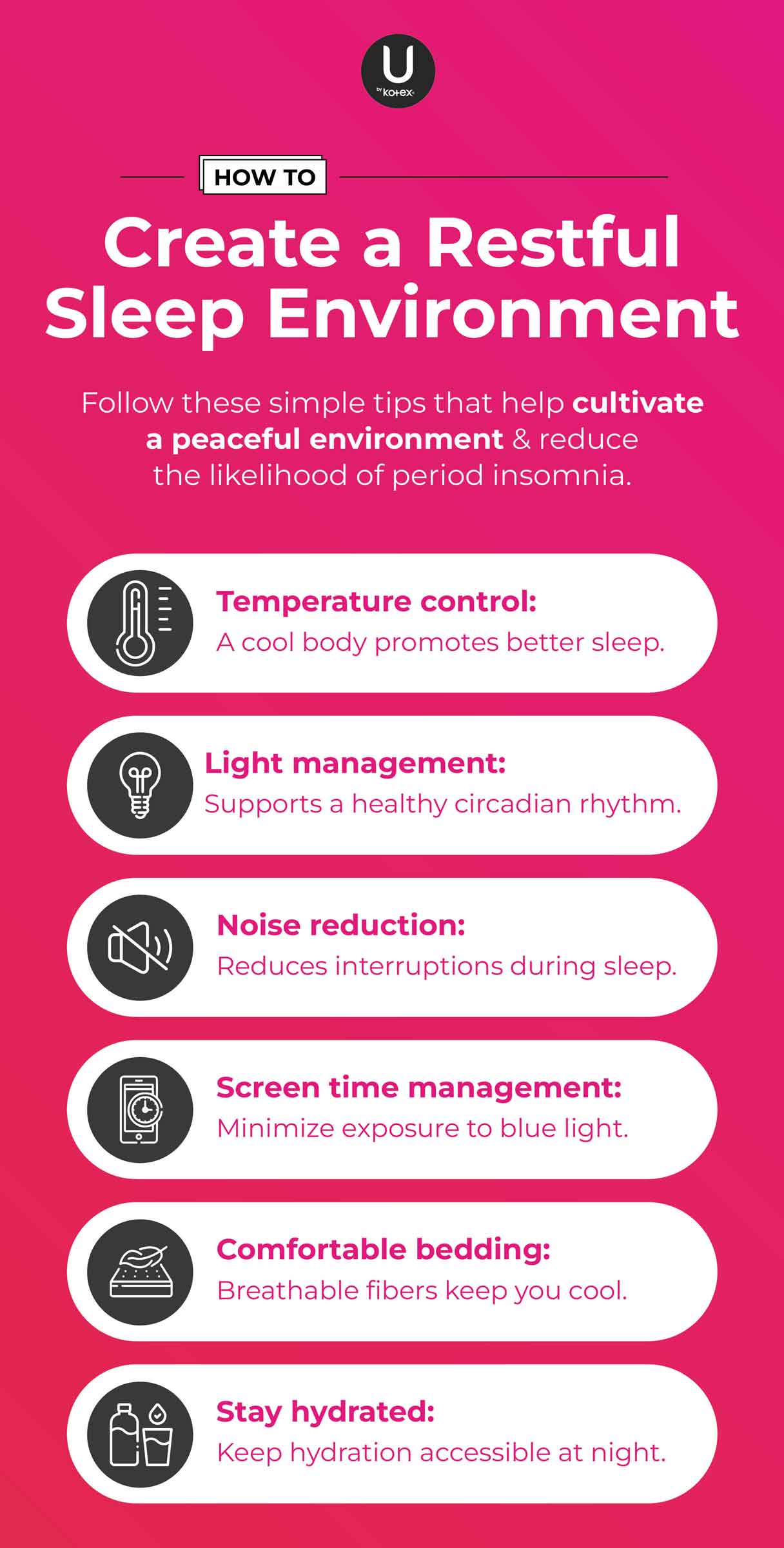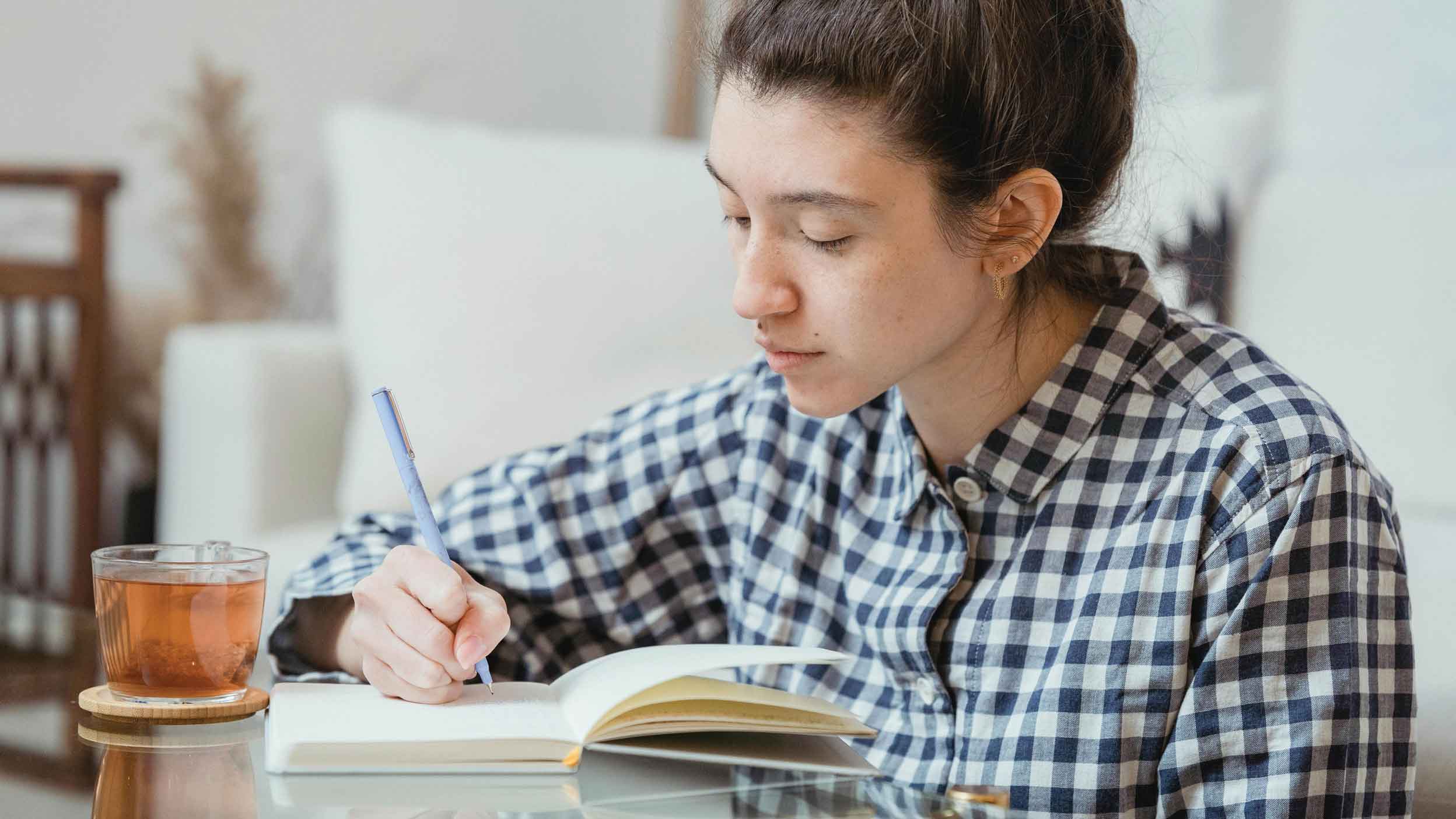How to Sleep On Your Period
Exhausted and cranky because your period keeps you up at night? Period insomnia is no walk in the park!
Just when you need rest the most, relentless cramps and fluctuating hormones team up to disturb your sleep, leaving you tossing and turning. Each night becomes a battleground between fatigue and discomfort, robbing you of precious hours of rejuvenation. The resulting tiredness invades your focus, productivity, and mood. Perhaps even worse, you could fall victim to sleep paralysis from a lack of sleep, which is downright terrifying.
Don’t stress! Let’s find out the best way to sleep on your period so you can feel revitalized for the next day.
How Your Period Impacts Your Sleep
Sleep disturbances during menstruation have a significant impact on a woman’s overall health. These disruptions can range from actual difficulty falling asleep to waking frequently throughout the night, impacting overall sleep quality and length. Understanding how your monthly cycle affects your sleep patterns can help you manage period insomnia more effectively and overcome daytime fatigue.
Physical Discomfort and Cramping
The dreaded period cramps are caused by contractions of the uterus as the body sheds its uterine lining. The extent of these cramps can range from mild to severe, with the more intense ones affecting the quality of sleep. If strong contractions occur, it can compress the blood vessels in the uterus and cut off oxygen supply to the surrounding muscle tissue to cause pain. If you know, you know!
Changes in Hormones
Hormonal shifts during your cycle can greatly influence sleep patterns. Your period hormones, namely estrogen and progesterone, fluctuate substantially in the days leading up to your period. This can potentially cause mood swings, anxiety, and period insomnia. In specific:
- Estrogen levels: During the first half of the cycle, known as the follicular phase, rising estrogen levels can improve your mood and sleep quality. But as estrogen levels dip before your period, sleep can become quite challenging. It’s common to experience hot flashes and night sweats.
- Progesterone levels: Progesterone peaks during the second half of your cycle (luteal phase) and then sinks before your period starts. When progesterone is at its highest, it has a calming effect that can help you get a good night's rest. However, as it decreases, you might find yourself waking up more often during the night.
Bloating
Related to period hormone fluctuations, you may experience abdominal bloating, which is another nightmare itself—no pun intended! Estrogen plays an important role in water retention, while progesterone is responsible for relaxing smooth muscle tissue, potentially slowing down digestion. If you experience bloating of your belly, the build-up of gas and fluid can make it challenging to find a comfortable sleeping position.
How to Improve Sleep During Your Period

Dealing with the troubles of period insomnia can be tricky. However, with the right tactics, you can improve your sleep quality and wake up feeling refreshed. Here are some practical tips for the best way to sleep on your period.
Prep with Overnight Products
One of the first steps to ensure a peaceful night’s sleep while on your period is to use the right products. Choose a high absorbency, yet comfortable menstrual pad, such as U by Kotex® Balance Extra Heavy Overnight. U by Kotex® Balance Extra Heavy Overnight offers extended coverage up to 0 back leaks while you sleep
Find a Comfortable Sleeping Position
Establishing a cozy position can make sleeping on your period that much more manageable. Ideally, lying on your side with a pillow between your knees works best. This fetal position distributes your body weight evenly and alleviates the pressure on the lower back, reducing cramps. Alternatively, lying on your back facing the ceiling with a pillow below your knees can also provide relief and prevent tossing throughout the night. It might be beneficial to experiment with various sleeping positions to learn what works best for you.
Exercise Regularly
Frequent exercise is an effective way to combat period insomnia. Physical activity helps your body balance hormones and reduce stress, making it easier to sleep during your period. Preferably, you’d want to aim for 30-45 minutes of moderate exercise at least 5 days a week. But listen to your body and adjust your routine based on your energy levels. Engaging in activities such as yoga, swimming, or light cardio can provide relief during your cycle by increasing feel-good endorphins. These are natural mood elevators and pain relievers that can alleviate menstrual discomfort. Remember, physical exercise is not only good for maintaining a consistent sleep pattern but also plays a significant role in your overall well-being.
Practice Good Nutrition
What you eat can play a big role in how well you sleep, especially during your period. Certain foods can help with unpleasant period symptoms and promote better sleep. In particular, foods high in magnesium, like leafy greens, bananas, and almonds, can help relax abdominal muscles and reduce cramps. It’s also important to keep yourself hydrated with enough water intake. Dehydration can make bloating and cramping even worse – nobody wants that! Also, it might be worthwhile to avoid excess caffeine or sugar, especially just before bedtime. This can largely interfere with your ability to get some shut-eye.
Create a Restful Sleeping Environment
During your period when hormonal changes may affect your sleep pattern, preparing your bedroom can significantly help you get your eight hours. Follow these simple tips to modify your sleeping environment to say goodbye to period insomnia:
| Bedroom Tip | Benefit | Examples |
|---|---|---|
| Temperature Control | It keeps your body cool for better sleep, cutting down on night sweats. Preferably between 60-67°F. |
|
| Light management | Maintains a healthy circadian rhythm. |
|
| Noise reduction | Reduces interruptions for continuous sleep. |
|
| Screen time management | Minimizes exposure to blue light, which can disrupt your sleep-wake cycle. |
|
| Comfortable bedding | Natural fibers are breathable and can keep you cool. |
|
| Stay hydrated | Designate a spot on your bedside table for water. |
|
By implementing these tricks, you create an atmosphere that is supports quality and restorative sleep while on your period. Every bit counts!
Track Your Cycle for Better Sleep Planning
Monitoring your menstrual cycle can help you anticipate changes in your body and make lifestyle adjustments to find the best way to sleep on your period. Here’s how to do it effectively:
1. Use a Menstrual Cycle Tracking App: Utilize apps to log your period cycle, symptoms, and sleep patterns. You’d be able to extract insights over time into how intense your flow would be.
2. Identify Sleep Disruption Patterns: Make a note of nights when you experienced poor sleep and correlate them with your cycle phases. This would allow you to recognize sleep disruption patterns.
3. Plan Your Activities Accordingly: Use insights from your cycle tracking to plan important activities during times when you are less likely to experience sleep disturbances. Thereby allowing you to get enough rest for when you need it the most.
4. Adjust Your Diet and Hydration: Modify your diet based on your cycle, such as consuming foods rich in magnesium when you are on your period. Also, avoid heavy meals closer to bedtime to lessen the chances of horrible bloat.
5. Prepare Your Sleep Environment: Anticipate difficult nights and create a cool, dark, and quiet sleep environment to promote tranquility to prevent waking during the night.
6. Use Meditation Techniques: It may be worth considering meditation exercises to calm the body and reduce anxiety levels before bedtime.
Sleep Soundly with U by Kotex®
When it comes to a restful night’s sleep, comfort and confidence are non-negotiable. That’s why U by Kotex® provides a range of products designed to help protect you while you sleep, no matter the extent of your flow! U by Kotex® pads are all unscented and dermatologist tested to be gentle on skin.
At U by Kotex®, we offer a variety of styles to suit your comfort needs. Each product is crafted with comfort in mind, allowing you to sleep peacefully.
Our range of absorbencies caters to every stage of your flow, from light to heavy. This means you can choose the perfect product for each day of your cycle, so you have the right level of protection. Be sure to change to a new/fresh pad right before bedtime.
“This content should not substitute medical advice from your personal healthcare provider. Please consult your healthcare provider for diagnosis or treatment.”



